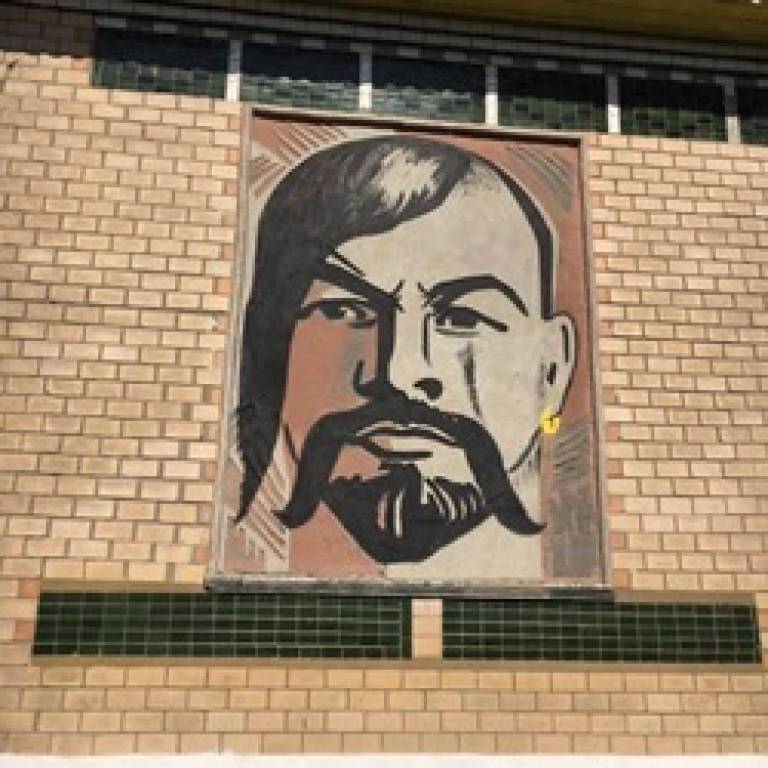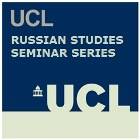“Decommunisation” and the Reshaping of National Memory in Ukraine and Beyond
01 November 2016, 6:00 pm–8:00 pm

Event Information
Location
-
Room 347, UCL SSEES 16 Taviton Street, London WC1H 0BW
Panel Discussion co-organized by the Ukrainian Institute, London and UCL SSEES.
Tuesday 1 November, 6-8pm
Speakers:
Anne Applebaum, Pulitzer-prize winning author and journalist, Director of the Transitions Forum at the Legatum Institute
Alina Shpak, Deputy Director, Ukrainian Institute of National Memory
Andrii Portnov, Director of the Berlin-Brandenburg Ukrainian Initiative at the Forum Transregionale Studien, visiting professor at Humboldt University, Berlin, editor of historians.ua website
Chair: Uilleam Blacker, UCL SSEES
If you wish to attend, please register for free here: https://docs.google.com/forms/d/e/1FAIpQLSddtqIy-EpI0QmOB9BQl6l0sB4OSDbgdhEacTPMpp6kwXL0eQ/viewform?c=0&w=1
In 2015, the Ukrainian government introduced the so-called ‘de-communisation’ laws, ordering changes in place names, the removal of Soviet monuments and symbols from public space, the recognition of a range of historical figures as ‘fighters for Ukraine’s independence, the introduction of new commemorative practices in relation to World War II, and increasing openness of Soviet-era archival materials. While some of the policies, such as the opening of archives and marking of May 8 as a day of Memory and Reconciliation, were supported by most citizens and hailed by experts, some other steps, such as the changes in topography and the official celebration of controversial figures from Ukraine’s wartime underground resistance, have proved divisive, and have provoked criticism both at home and abroad. Developments have been observed keenly in both Russia and Poland. Russia perceives the moves as a further threat to its influence in Ukraine and a challenge to the discourse of victory over fascism in the Great Patriotic War, which the Putin regime continues to use to legitimize itself. In Poland, the celebration of wartime nationalist organizations that were involved in mass violence against Poles has caused major consternation and prompted direct political responses. These and other questions raised by the policy of ‘de-communisation’ will be discussed by a panel of leading experts on these topics.
The discussion will be preceded by a screening of a short documentary film, "Alive and Unbreakable," ("Живі та нескорені") from a dedicated series on de-communisation produced by the Journalism School of the Ukrainian Catholic University (UCU), Lviv, Ukraine.
The discussion will be followed by a wine reception.
Speakers biographies:
Anne Applebaum
Anne Applebaum is a columnist for the Washington Post and the Director of the Transitions Forum at the Legatum Institute, a program which examines political and economic transitions. She is the author of several books, including Gulag: A History, which won the 2004 Pulitzer Prize for non-fiction and Iron Curtain, which won the 2013 Cundill Prize for Historical Literature. Since 1989, her writing has frequently focused on the politics of post-communist transition in Russia and Europe, but she also writes extensively about British, American and European politics. Anne is a former member of the Washington Post editorial board, a former deputy editor of the Spectator magazine, and a former Warsaw correspondent of The Economist. She has been a visiting professor at the London School of Economics and has lectured at many other universities, including Yale, Harvard, Columbia, Zurich and Heidelberg.
Alina Shpak
Alina is Deputy Director of the Ukrainian Institute of National Remembrance. The Institute is a government agency responsible for the implementation of state policy related to national memory and the overcoming of the totalitarian heritage in Ukraine. She was among the authors of the four “de-communisation” laws adopted by the Parliament of Ukraine in April, 2015. Ms Shpak was also Deputy Director of the Security Service of Ukraine Archives, responsible for declassification and open access to KGB documents. She acts as an expert for the Reanimation Package of Reforms, a civic platform that serves as a coordination center for the development and implementation of key reforms in Ukraine. Ms Shpak has written manuals and trained staff on access to information and archival documents, policy-making, advocacy, quality management system.
Andrii Portnov
Andrii Portnov is a Fellow at the Forum Transregionale Studien, Berlin, Director of the Berlin-Brandenburg Ukrainian Initiative and Guest Lecturer at the Humboldt University in Berlin. From 2006 to 2010 he was editor of the journal Ukraina Moderna, and since 2012 has been editor of the Ukrainian intellectual web portal historians.in.ua. In 2012-2014, Dr Portnov was a Fellow at the Wissenschaftskolleg zu Berlin, and in 2014-2015 was an Alexander von Humboldt Fellow. In 2015 he was awarded the Baron Velge Prize and was International Chair for the History of the Second World War at the Free University of Brussels. In Spring 2016 he was a Guest Professor at SciencesPo Paris. His publications are devoted to intellectual history, historiography, genocide and memory studies in Eastern and Central Europe, and include: Histories for Domestic Use. The Polish-Russian-Ukrainian Triangle of Memory (in Ukrainian, 2013; Yuri Shevelov Prize); Historians and their Histories. The Faces and Images of Ukrainian Historiography in the 20th century (in Ukrainian, 2011); Ukrainian Exercises with History (in Russian, 2010); Between “Central Europe” and the “Russian World” (in Ukrainian, 2009); Scholarship in Exile. The Scholarly Activity of Ukrainian Emigration in inter-war Poland 1919-1939 (in Ukrainian, 2008; Jerzy Giedroyc Prize).
Image: 'Lenin as cossack' by Marina Pesenti


 Close
Close

